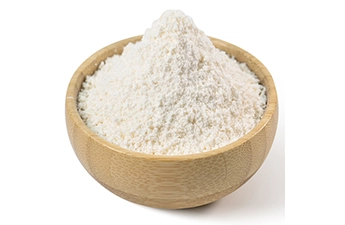A liposome is a microscopic vesicle composed of one or more phospholipid bilayers that enclose an aqueous core. Phospholipids are amphiphilic molecules, meaning they have both hydrophilic (water-loving) and hydrophobic (water-fearing) parts. In an aqueous environment, phospholipids spontaneously assemble into bilayers, with the hydrophilic heads facing outward towards the water and the hydrophobic tails facing inward, away from the water. This forms a spherical structure with an inner aqueous compartment, which can encapsulate hydrophilic substances, and the lipid bilayer can incorporate hydrophobic substances. Liposome products can enhance the bioavailability of effective substances.
Improved Nutrient Absorption: In the realm of nutraceuticals, "liposomal" is used to enhance the absorption of nutrients. Many nutrients, such as glutathione and certain vitamins, have poor solubility and bioavailability in their natural forms. Liposomal encapsulation can increase their solubility and protect them from degradation in the digestive tract, thereby improving their absorption and utilization in the body.
Enhanced Stability: Liposomal formulations can protect nutraceuticals from environmental factors such as light, oxygen, and heat, which can cause degradation. This is particularly important for sensitive nutrients like probiotics. Liposomal encapsulation helps maintain the viability and activity of probiotics, ensuring that they reach the gut in a functional state.
Targeted Delivery: Similar to pharmaceuticals, liposomal technology in nutraceuticals can also achieve targeted delivery. For example, liposomal curcumin can be designed to target specific cells or tissues in the body where its anti-inflammatory and antioxidant effects are most needed, improving its overall efficacy.
In summary, "liposomal" in pharmaceuticals and nutraceuticals represents a sophisticated delivery technology that utilizes the unique properties of liposomes to improve the efficacy, safety, and bioavailability of drugs and nutrients, offering significant advantages in both therapeutic and preventive health applications.

Liposomes are commonly used in the field of food science for nutrient encapsulation and delivery: Liposomes can encapsulate various nutrients such as vitamins, minerals, and polyunsaturated fatty acids. In addition, liposomes can protect nutrients from degradation in the gastrointestinal tract and enhance their bioavailability.
In cosmetics, liposome products are often used for moisturizing and skin hydration, Liposomes can encapsulate water-soluble and oil-soluble moisturizing ingredients.
Delivery of Active Ingredients: Many active ingredients in cosmetics, such as vitamins (like vitamin C and vitamin E), peptides, and plant extracts, have poor stability and low permeability in their free forms. Liposomes can protect these active ingredients from oxidation and degradation, and improve their permeability through the skin.
For example, liposome-encapsulated retinol can more effectively penetrate the skin and play a role in anti-aging and promoting skin cell renewal.

Contact With Us:
E-mail: Sales@natural-field.com
Have a Questions? Call Us:
Add:
5th Floor, Building B, No.57 Keji 3rd Road, Xi'an 710065 China